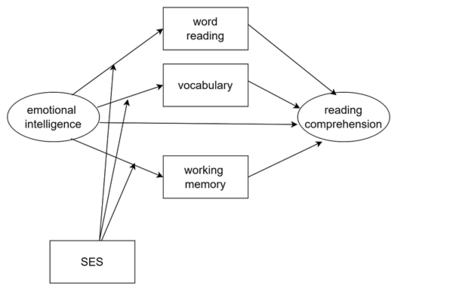How Social-emotional Skills Affect Children’s Reading Comprehension: A Cross-Lagged Longitudinal Study
Funding Scheme
General Research Fund (RGC)
Funding Amount
HK$1,127,000
Awarded Year
2023
Does children’s social and emotional development affect their reading comprehension and how?
The current study tests:
- the dynamic bidirectional relationship between social-emotional skills and the growth rate of reading comprehension in children,
- the underlying mechanism linking social-emotional skills and reading comprehension, and
- whether the growth/failure of social-emotional skills causes the growth/failure of reading comprehension and vice versa.
Sustainable Development Goals
In 2015, UN member states agreed to 17 global Sustainable Development Goals (SDGs) to end poverty, protect the planet and ensure prosperity for all. The research team contributes towards the following SDG(s):
Our Researcher(s)
Several key questions about the link between social-emotional skills and reading comprehension remain unanswered: (1) Are these skills and reading comprehension bidirectionally and longitudinally linked? (2) What mechanisms underlie this association? (3) Do poor social-emotional skills lead to poor reading comprehension, or do reading difficulties cause adverse social experiences and emotional issues, resulting in perceived poor social-emotional skills?
This study’s use of a longitudinal design to explore the bidirectional relationship between social-emotional skills and reading comprehension will provide new insights on the relation between social-emotional skills and reading comprehension. It will reveal how cognitive and oral language skills mediate this link, highlighting mechanisms crucial for academic success. The findings will aid in crafting policies and interventions to reduce reading comprehension disparities. They will also guide parents, educators, and policymakers in enhancing intervention programmes by integrating social-emotional skills with language and cognitive skills. This will better support at-risk readers and children facing social-emotional challenges, benefiting both child development and academic opportunities.
The short-term goals are to deepen the understanding of how social-emotional skills relate to reading comprehension and assess whether poor skills lead to poor reading or vice versa. Medium-term goals focus on creating evidence-based reading materials to enhance social-emotional learning and comprehension. The long-term goals include establishing social-emotional learning (SEL) programmes in primary schools and promoting curriculum changes to integrate social-emotional skills into literacy education, incorporating both explicit and implicit methods into SEL programmes. Key stakeholders include children, teachers, scholars, parents, and policymakers.
Selected Publications
|
|







